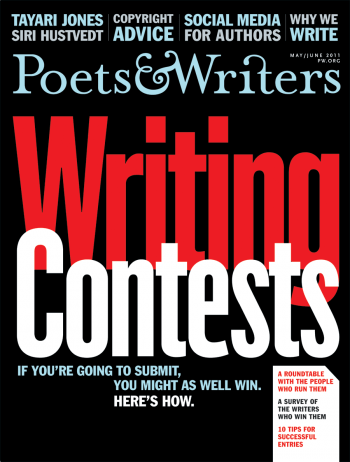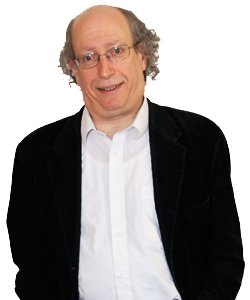
A special section on writing contests, including a roundtable with the people who run them and a survey of the writers who win them; profiles of novelists Siri Hustvedt and Tayari Jones; social media for authors, and more.
Jump to navigation Skip to content

A special section on writing contests, including a roundtable with the people who run them and a survey of the writers who win them; profiles of novelists Siri Hustvedt and Tayari Jones; social media for authors, and more.
In her fifth novel, The Summer Without Men, Siri Hustvedt draws on her fascination with memory and all things cerebral to spin a twisted tale of love an marriage.
With the publication of her third novel, Silver Sparrow, Tayari Jones presents an intriguing paradox: a serious literary author who wants her readers to have fun.
In this special section on writing contests: Four prize administrators offer a behind-the-scenes look at how their contests are run; an analysis of the 129 writers who won book publication prizes last year; plus ten tips for successful entries.
Arts supporters in Kansas succeeded in their efforts to reverse Governor Sam Brownback’s decision to replace the Kansas Arts Commission with a private foundation.
With so many good books being published every month, some literary titles worth exploring can get lost in the stacks. Page One offers the first lines of a dozen recently released books, including Tracey K. Smith's Life on Mars and Chika Unigwe's On Black Sisters Street, as the starting point for a closer look at these new and noteworthy titles.
This September Bread Loaf Writers’ Conference will expand its workshop from the historic Bread Loaf Inn in Middlebury, Vermont, to the Italian island of Sicily, with a condensed program of classes in poetry, fiction, and creative nonfiction.
In this regular feature, we offer a few suggestions for podcasts, smartphone apps, Web tools, newsletters, museum shows, and gallery openings: a medley of literary curiosities that you might enjoy.
Librarians revolt against HarperCollins after its decision to limit the number of times a digital copy of an e-book can be checked out and returned.
Small Press Points highlights the happenings of the small press players. This issue features Ice Cube Press, the nineteen-year-old publisher based in Iowa City with a focus on the importance of place.

As he prepares to step down from his role as publisher of Coffee House Press, founder Allan Kornblum speaks about responsible publishing, the future of the book, and returning to his roots.

Two book paintings by Los Angeles artist Mike Stilkey, whose works will be on display in the exhibition Face to Face: The Changing Face of Portraiture at the William D. Cannon Art Gallery in Carlsbad, California.
Before signing a publication contract with a literary journal, writers should consider the long-term implications of the agreement. One short story writer offers a rundown on industry standards.
The editors of the sixty-one-year-old Beloit Poetry Journal, which has published the early works of luminaries from Charles Bukowski to Anne Sexton, are looking for poems that pass the “so what” test.
For debut fiction writer Charles McLeod, the path to publication led across the pond, to Random House UK.
Public relations consultant Lauren Cerand offers tips for how to utilize Twitter, Facebook, blogs, and community Web sites to not only persuade a reader to buy a book, but to do it now.
While explicit cruelty has its place in literature, violence may be more cunningly crafted by allowing the reader to wander into the dark corners of his own mind.
A writer employed outside traditional literary channels makes the case for the working-writing split.
Is a writer employed outside of the literary realm any less of an artist? One writer makes the case for the nine-to-five juggling act.
While explicit violence has its place in literature, Benjamin Percy and Aaron Gwyn explain how scenes of brutality may be more cunningly crafted by allowing the reader to wander into the dark corners of his own mind.
After personal tragedy shakes one writer's life out of focus, the written word helps her reshape the world and, ultimately, find joy.